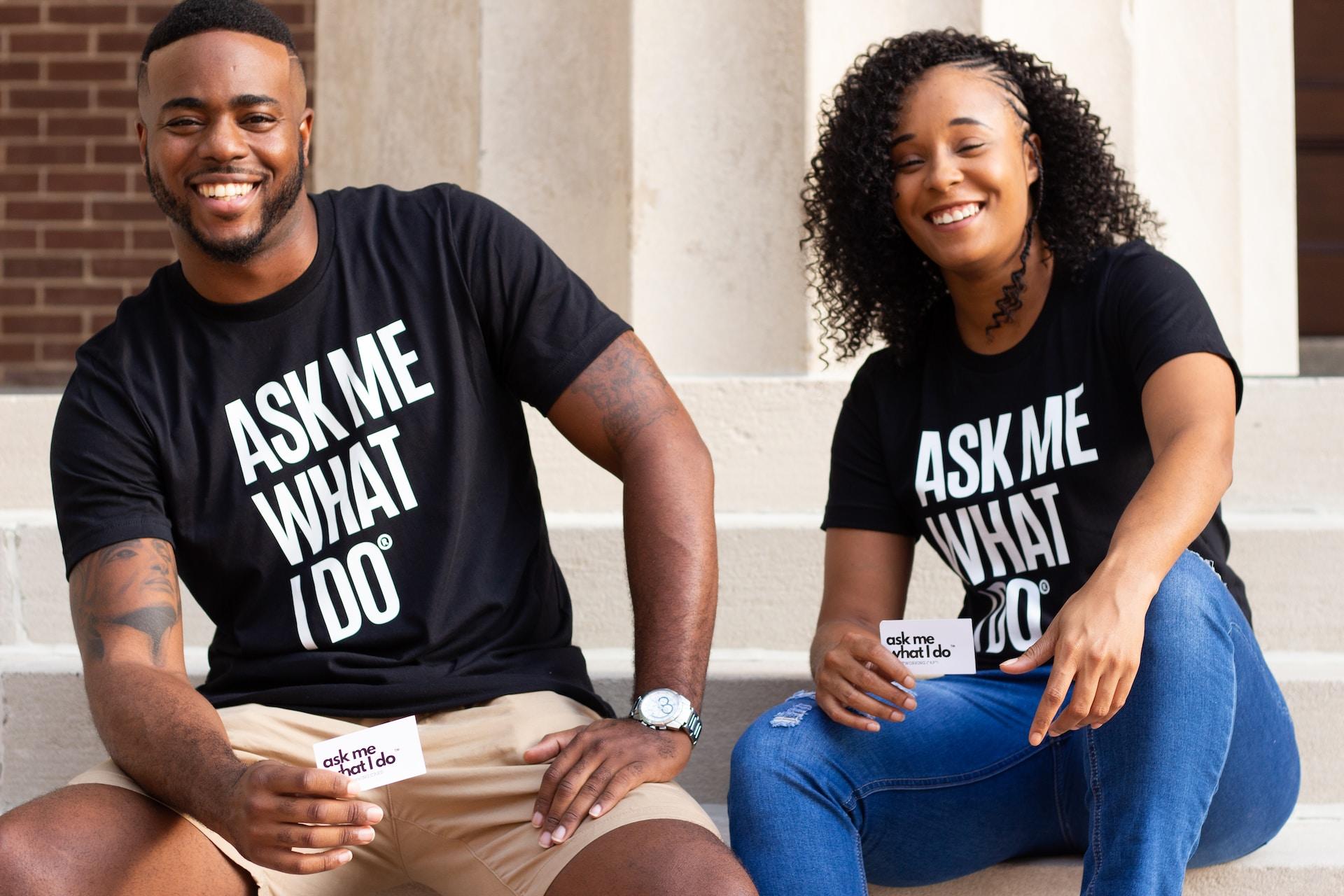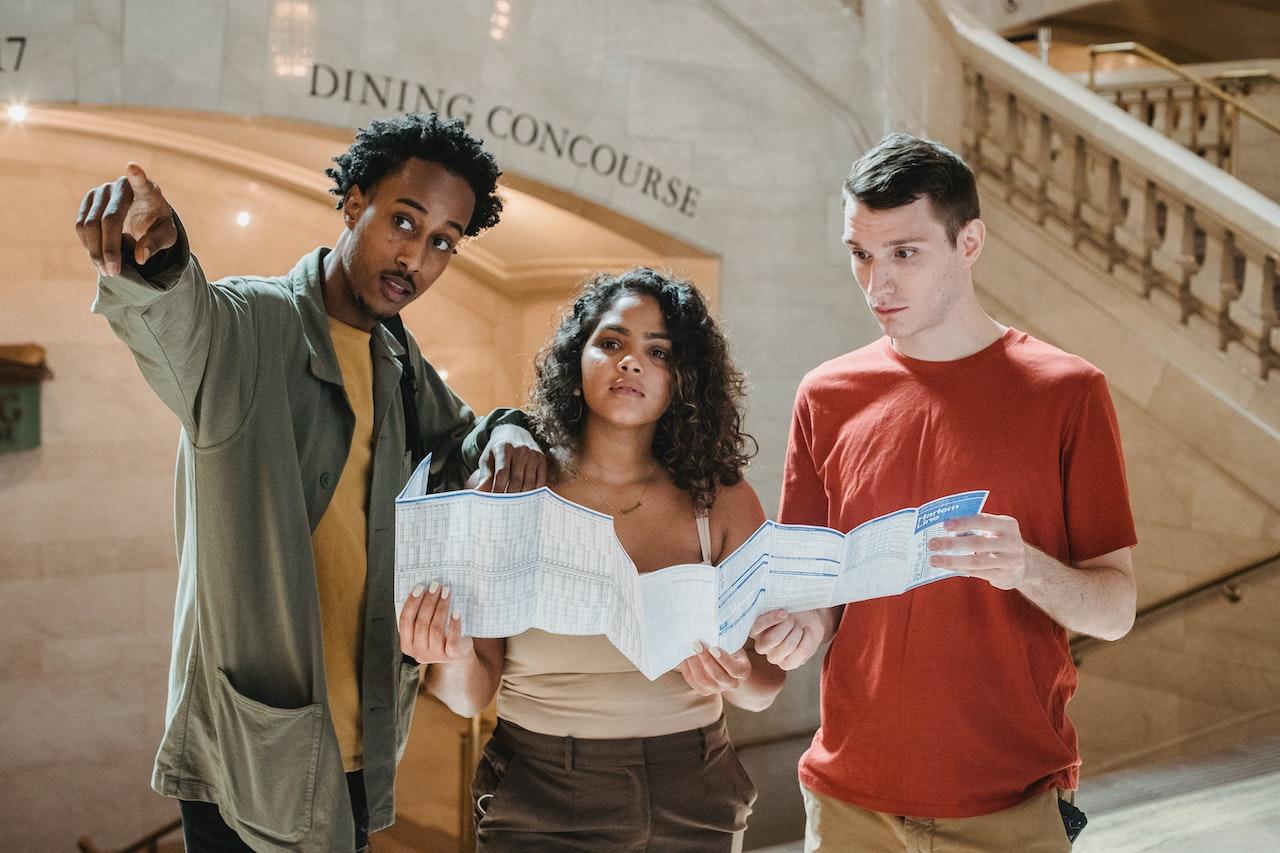When you learn any new language, you will want to learn how to ask and answer questions. They are part of everyday speech and are invaluable tools for finding out information, getting your bearings in any situation, and getting to know people.

Different Types of Questions in English
- Yes/No Questions
- Did she finish her homework?
- Choice Questions
- Is your friend a teacher or a student?
- “WH” Questions
- Why are you late?
- Disjunctive Questions (Question Tags)
- She can sing, can’t she?
- Rhetorical Questions
- Why bother?
- Indirect Questions
- Could you tell me what time it is?
The first thing to keep in mind is that there are actually written rules about the English language about everything, and questions are no exception.
Questions are formally known as interrogative sentences. Think of the word “interrogation” meaning a formal interview where one person is questioned heavily.
Yes/No Questions
This is the most straightforward type of question in English.
While you can elaborate your answer to the question, you can specifically answer it with a simple “yes” or “no.”
The proper way to ask any yes/no question is to slightly raise the intonation of the voice at the end, which indicates a question mark.
Here are some examples of simple yes/no questions. Each of these can be answered in one word.
- Did you enjoy your stay?
- Are they coming with us?
- Can you help me?
You can elongate your answers to sound less brusque or reiterate the question to show you listened and understood.
- Q: Do you know the muffin man?
A: Yes, I do. - Q: Have you ever had this food before?
A: No, I haven’t. - Q: Are you sure about this?
A: Yes, I am.
When might you say “Maybe” or “I don’t know?”
In situations where you cannot give a definitive “yes” or “no,” it’s best to give a different answer.
Even if you can’t explain your reasons fully, giving an unsure answer will tell your questioner that they will need to gather more information to find out the answer.
- Do you know their phone number?
- Are you sure you packed all your belongings?
- Are you sure about
- Will you be here in 3 hours?
- Will you do my work on time?
If you aren’t sure of the answer, be honest!
Join spoken English classes in Coimbatore and learn all the Gen Z lingo!

Choice Questions
This type of question is similar to multiple-choice questions or short-answer questions on an exam.
They require you to give your input to be resolved. Typically, choice questions will contain the word “or” which signals that a decision needs to be made between two or more options.
Here are some choice questions and how they can be answered:
- Q: Do you want ice cream, cookies, chocolate, or cake?
A: I would like ice cream, please. - Q: Did they go to the store or the park?
A: They went to the park. - Q: Are you a teacher or a student?
- A: I am a student.
When the question is formatted in a way that concerns the subject, the auxiliary verb comes before the second option. The answers then can be shortened, if desired.
- Q: Did he do that, or did you?
A: He did it. - Q: Are you coming, or is she?
A: I am.
Once again, you can also answer any of these questions with “I don’t know” or “I’m not sure” if you don’t have a definite answer! Sometimes, we need to think about something or find out more information before we can give a proper response, so feel free to say “I need to think about this” or “I need to ask my mother first,” for example, if needed.
Learn all about questions and answers with English speaking online classes.

“WH” Questions
When a sentence starts with a “WH” word and ends with a question mark, the answer requires you to think and respond. In the previous two types of questions, we could guess a large part of the answer by reusing the same words that were in the question.
Generally, with “WH” questions, you’ll need to have a tighter grip on English to answer well.
The “WH” question words and what they indicate are:
- Who - represents people
- What - represents things and actions
- When - represents time
- Where - represents places
- Why - represents reasons
- Which - represents options*
- Whose - represents ownership
- How - represents method
- How + verb, adverb, or adjective - represents degree
- How + verb, adverb, or adjective - represents degree
Note: You’ll notice that “which” can also be used in Choice Questions, for example, “Which one do you want: ice cream or cake?”
This is where your understanding of English will be tested. Many people, including native English speakers, get mixed up from time to time about which word they should be using. When I was a kid, this scene from Spy Kids 2 helped me remember some of these “WH” words, and it’s still stuck in my head to this day.
Notice that even though “how” obviously begins with an “H” and not a “W,” it’s still included in the list. You can remember this easily because “how” still has both a “W” and an “H,” just in a different order.
If you are in Delhi NCR and need to practise asking questions clearly and more, try english classes in delhi on Superprof
How Many “How” Questions Are There?
How is a special word in this type of sentence!
How, on its own, is asking “By what methods is/was this thing done?”
For example:
- How are cars made?
- How do you know so much about birds?
How much/how many is asking “what is the amount?”
For example:
- How many candies are in the bag?
- How much does this cost?
How + verb, adverb, or adjective is asking “to what degree?”
For example:
- Verb: How are you doing?
Meaning: To what degree are you doing (well)? - Adverb: How silently can you walk?
Meaning: To what degree of silence can you walk? - Adjective: How angry are you?
Meaning: To what degree do you have anger?
This is the type of “how” to use when you formally introduce yourself: “How do you do?”
How to Answer “WH” Questions (Types Of Questions Examples)
“WH” questions are like open-ended exam questions. You’ll need to answer with a little bit of creativity to make sense. In general, there is a type of formula you can use to answer the questions, so keep these associations in mind!
“It is astonishing how much enjoyment one can get out of a language that one understands imperfectly.” - Basil Lanneau Gildersleeve
- Who
Proper noun or pronoun (he, she, they, Samuel, Victoria, Fido...)
Q: Who ate all the biscuits?
A: It was the neighbor’s dog, Spotty! - What
Noun (the house, the sky, the car, a bird, a marker, a shoe...)
Q: What is making that sound?
A: The wheel is squeaking. - When
Unit of time (one month, eight years, twenty seconds, yesterday...)
Reference to time (“When I was at the gym,” “When my father arrives.”)
Q: When will we go to Spain?
A: In 3 months.Q: When did you get that bruise?
A: When I was at work. - Where
Place (the store, Malaysia, outer space, at work, the countryside...)
Q: Where did I leave my keys?
A: In the kitchen. - Why
An explanation (because…, maybe…, he wanted…, I thought…)
Q: Why did you do this?
A: I thought that it would be a good idea.Q: Why is the grass green?
A: Because the grass has chlorophyll. - Which
A choice
Q: Which of you will help me do the dishes?
A: I will help. - Whose
Proper noun or pronoun (mine, yours, theirs, hers, his)
Q: Whose shoes are on the floor?
A: Not mine! - How
An explanation
Q: How do giraffes eat the leaves?
A: They use their long necks to reach. - How much/How many
An amount (one, a pound, a kilogram, four mLs, eight years, a dollar, a lakh...)
Q: How much flour do we need?
A: Two cups.Q: How many years did you stay there?
A: I stayed for three years. - How + verb, adverb, or adjective
An answer that matches the question
Q Verb: How are you doing?
A: I am doing well.Q Adverb: How silently can you walk?
A: I can walk very silently.Q Adjective: How angry are you?
A: I am very angry.
Disjunctive Questions (aka Question Tags)
This type of question turns a regular statement into an interrogative sentence by “tagging on” a question at the end.
For example: “You would still love me if I were a worm, wouldn’t you?”
The first part of the sentence is a declaration: You would still love me if I were a worm.
But the asker wants to verify with you that the statement is correct, so they spin the sentence into a question for you to respond.
Another way to ask this question would be “You would still love me if I were a worm, right?” They are asking “Am I right?”
You could answer, “Yes, I would,” or “No, absolutely not.”
Just like yes/no questions, you should be sure to raise the intonation of the voice at the end to indicate that you are looking for an answer. If you don’t use that intonation, someone might think you are asking a rhetorical question.

Rhetorical Questions
Rhetorical questions are questions that are not intended to be answered. They are generally asked either to prove a point or to use a figure of speech.
The asker knows the answer already, and depending on which kind of question they “ask,” they can display humor or condescension. It’s a tricky part of English!
Some examples of rhetorical questions that are figures of speech are:
- Do fish swim? Does a bear poop in the woods? Is the Pope Catholic? Is rain wet?
Meaning: Yes, obviously. - Who knew?
Meaning: It seems like nobody is sharing this information. - Who could be better than me?
Meaning: I am the best choice. - What’s not to like?
Meaning: There is nothing unlikeable here. - Who’s to say?
Meaning: Nobody really knows. - Why bother?
Meaning: There’s no point in trying.
Frequently, rhetorical questions are used to put people down or point out a misstep. It is a passive-aggressive way of communicating frustration or disapproval.
- How could you be so stupid?
- Why me?
- Do you want us to get in trouble?
- Have you no decency?
- Are you serious?
- What have you ever done for me?
- Do you know what time it is? (implying that you are late)
Rhetorical questions are also used for dramatic effect and persuasion, especially in literature, poetry, comedy, and speeches.
"Never discourage anyone who continually makes progress, no matter how slow." - Plato
- "Hath not a Jew eyes?
Hath not a Jew hands, organs, dimensions, senses, affections, passions?
If you prick us, do we not bleed, if you tickle us, do we not laugh?
If you poison us, do we not die?
(Shylock in William Shakespeare's Merchant of Venice) - "If practice makes perfect, and no one's perfect, then why practice?"
(Billy Corgan) - "Isn't it a bit unnerving that doctors call what they do 'practice'?"
(George Carlin) - "Now, what does all of this mean in this great period of history?"
(Martin Luther King, Jr in his famous “I Have A Dream” speech)
Indirect Questions
While technically not an interrogative sentence because of the structure, you should still be able to identify when you are being asked an indirect question, since it’s one of the most common types of English conversation questions.
They are frequently presented as questions within a question, like
- Do you know where to find good burgers around here?
At first glance, this looks like a yes/no question. But if you answer yes without telling the asker where to find the burger, you aren’t answering their question.
What they want to know is “Where can I find good dabeli?” So, if you do know, say “Yes, there is a restaurant near the cinema that has delicious dabeli.”
Indirect questions are more polite ways to ask strangers and acquaintances about something.
If you walked up to a stranger and said “Will the bus be here soon?” It gives the impression that you believe the person you are asking has intimate knowledge of the status of the bus.
They will likely be annoyed that you think they have secret knowledge when actually they only know as much as you do.
Instead, say “Do you know if the bus will be here soon?” This way, you are acknowledging that they might not have any extra information, so you understand if they don’t have anything new to tell you. Plus, if they do have any extra information, such as overhearing a station attendant talking on the radio to the bus driver, you are inviting them nicely to share that information with you.
Other indirect questions might look like regular sentences, such as:
- I wonder where I put my drink.
Meaning: Where did I put my drink? - Please let me know what time is good for you.
Meaning: What time is good for you? - I would like you to tell me where you were yesterday.
Meaning: Where were you yesterday?
English sure is a complicated language to master! But when you learn these nuances of the common types of questions, you will be navigating conversations and literature like a professional. If you want extra help learning how to speak, listen, read, or write in English, check out tutors right here on Superprof!
Increase your fluency by searching for spoken English near me.
Summarise with AI:
















Bryanna, it was my intention to give you five stars, but the system didn’t allow me. It was a very good article!
Thank you for your kind words.